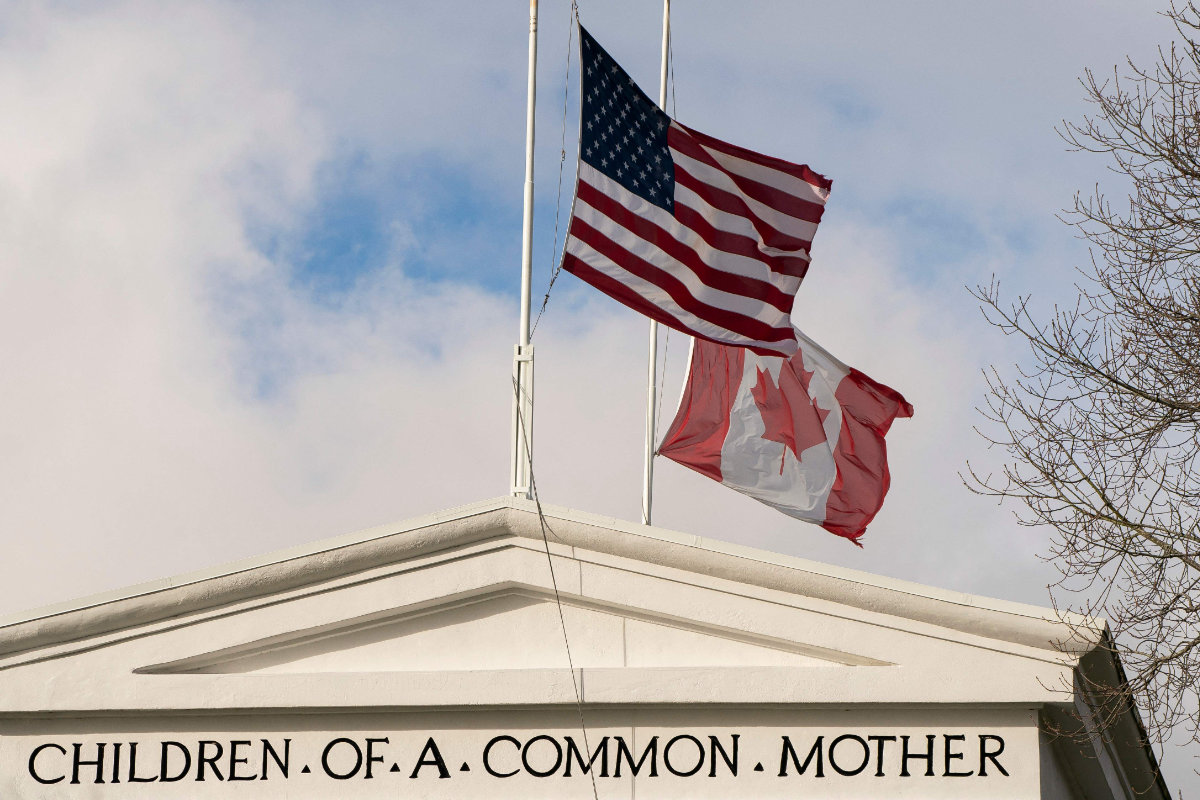SRINAGAR: Ahead of the final phase of a local election in Indian-controlled Kashmir, a key resistance leader says the regional polls to choose a local government will not resolve the decades-old conflict that is at the heart of a dispute between New Delhi and Pakistan.
Mirwaiz Umar Farooq, who has spent most of the last five years under house detention, said the polls are being held as political voices contesting India’s sovereignty over the region remain silenced after Prime Minister Narendra Modi’s Hindu nationalist government stripped the region of its long-held semi-autonomy in 2019.
The detained leader said in a phone interview with The Associated Press that the election, touted by the Modi government as a “festival of democracy” in the region, cannot be an alternative to resolving the dispute.
“These elections cannot be the means to address the larger Kashmir issue,” said Mirwaiz, who is also an influential Muslim cleric and custodian of the six-century-old grand mosque in the region’s main Srinagar city, the urban heartland of anti-India sentiment.
The multistage election, the last phase of which is being held Tuesday, will allow Kashmir to have its own truncated government and a regional legislature with limited powers. It is the first such vote in a decade and the first since 2019, when New Delhi downgraded and divided the former state into two centrally governed union territories — Ladakh and Jammu-Kashmir — both ruled directly by New Delhi through unelected bureaucrats.
Authorities have said the election will bring democracy to the region after more than three decades of strife, but many locals see the vote as an opportunity not only to elect their own representatives but also to register their protest against the 2019 changes they fear could dilute the region’s demographics.
India’s clampdown following the 2019 move “has silenced people” in the region who “feel dispossessed and disempowered,” Mirwaiz said.
“You may not see active turmoil like before 2019 but there is a strong, latent public resistance to all this,” he said. “We have been forcibly silenced, but silence is not agreement.”
India’s sudden move, which largely resonated in India and among Modi supporters, was mostly opposed in Kashmir as an assault on its identity and autonomy. Fearing unrest, authorities detained Mirwaiz and thousands of other political activists, including Kashmiri pro-India leaders who objected to India’s move, amid an unprecedented security clampdown and a total communication blackout in the region.
The region has since been on edge, with civil liberties curbed and media gagged.
Mirwaiz heads the All Parties Hurriyat Conference, an umbrella grouping that espouses the right to self-determination for the entire region, which is divided between India and Pakistan.
According to Mirwaiz, the crackdown has restricted his group’s access to people and shrunk its “space and scope for proactive involvement” like before.
“The massive assault has considerably weakened the organizational strength of the Hurriyat, but not its resolve,” he said.
India and Pakistan have fought two of their three wars over Kashmir, and both countries control parts of the Himalayan territory divided by a heavily militarized frontier. After their first war in 1947, a United Nations referendum a year later gave Kashmir the choice of joining either Pakistan or India, but it never happened. The part of Kashmir controlled by India was granted semi-autonomy and special privileges in exchange for accepting Indian rule.
However, Kashmiri discontent with India soon began taking root as successive Indian governments started chipping away at that pact. Local governments were toppled and largely peaceful anti-India movements were harshly suppressed.
In the mid-1980s, an election that was widely believed to have been rigged led to public backlash and an armed uprising. Since then, rebels have been fighting in the Indian-controlled part for a united Kashmir, either under Pakistani rule or independent of both.
Many Muslim Kashmiris support the rebels’ goal. India insists the Kashmir militancy is Pakistan-sponsored terrorism. Pakistan denies the charge, and many Kashmiris consider it a legitimate freedom struggle.
Tens of thousands of civilians, rebels and government forces have been killed in the conflict.
Mirwaiz’s group believes only talks between India, Pakistan and the region’s people can end the conflict. In the past, he has held several rounds of talks with both New Delhi and Islamabad leaders, including their heads of government. However, under Modi, India has shifted its Kashmir policy and stopped engaging with the region’s pro-freedom leaders, including Mirwaiz.
Previous elections in the region have been marred by violence, boycotts and vote-rigging, even though India called them a victory over separatism. This time, the pro-freedom groups, largely incapacitated with most of their leaders jailed, have issued no calls for boycotts.
They also did not boycott India’s recent general election. Instead, some lower-ranking activists, who in the past dismissed voting as illegitimate under military occupation, are running for office as independent candidates.
“Boycott was the democratic means to express anger, reject this projection and draw attention toward the unsolved issue (of Kashmir),” Mirwaiz said. But India’s crackdown has left people “powerless and disempowered” and in such a scenario a “poll boycott cannot work anymore.”
Mirwaiz has distanced himself from the election, but said it had been engineered in favor of Modi’s Hindu nationalist politics before it started on Sept. 18.
He cited the government’s July amendment to legislation that gives sweeping executive powers to the federally appointed administrator even after a new local government comes to power in the region. He also referred to the redrawing of assembly districts in 2022 as “electoral gerrymandering,” an act that gave more electoral representation to the Hindu-dominated Jammu areas over the region’s overwhelmingly Muslim-majority Kashmir Valley.
Mirwaiz, however, hoped Kashmiri groups, including pro-India parties, would jointly seek a resolution of the conflict. He expressed his willingness to engage in talks with India but warned that the election should not be seen as public acceptance of New Delhi’s changes in the region.
Public participation in the election, Mirwaiz said, “is a release of their pent-up emotions and a means to oppose these disempowering and dispossessing measures, besides hoping to get some relief and redressal for their bread and butter issues.”


























